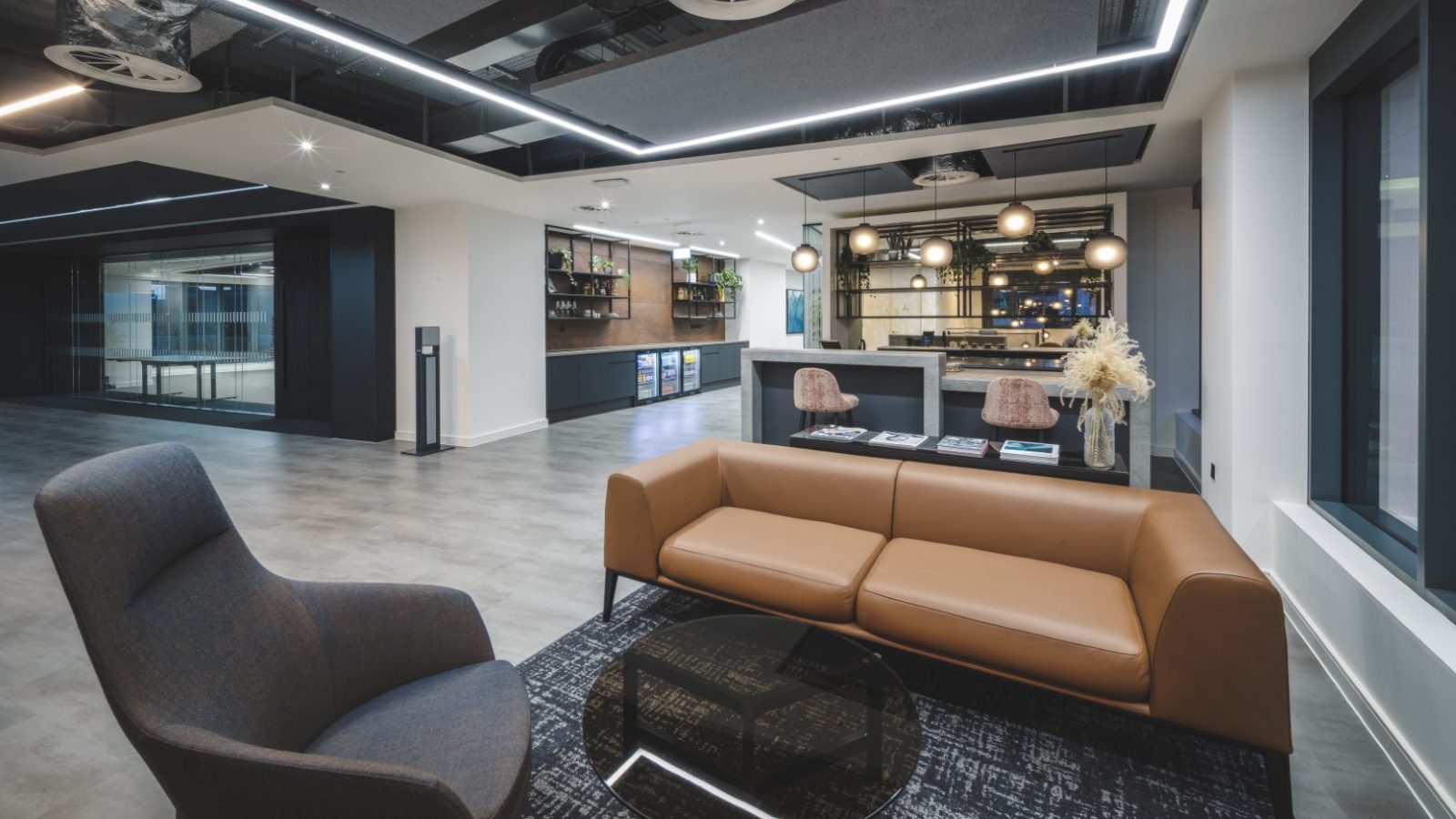
Research shared at the recent Workplace Trends Research summit highlighted a growing need for business leaders and those involved with workplace design to understand and cater for neurodiversity.
As one in seven people are thought to be neurodiverse – which refers to conditions such as ADHD, autism and dyslexia –there is value in understanding this group’s needs, particularly as they are widely credited for their excellent lateral thinking, analytical and creative skills.
The research, which was undertaken by HOK and Target North, addressed what neurodiverse employees require from the workplace, not just to function but to excel. In particular it highlighted how varying sensory thresholds affect neurodiverse employees’ ability to interact with and feel comfortable in their surroundings – all valuable insights for those embarking on new office interior design projects.
Hypersensitive individuals, which can include those with ADHD, tend to favour more ordered experiences and reduced stimuli. This means they are likely to struggle in an environment with unfamiliar smells, changing temperatures, varied textures or high levels of noise and bright lights. In contrast, hyposensitive individuals, which might include those with autism, often having difficult seeing, hearing and feeling sensory details. Consequently they often need far greater stimuli in order to process information about their surroundings.
At first glance this idea of catering for particular neurodiverse conditions may feel at odds with creating workplaces with mass appeal (as a destination office) but this isn’t the case according to Sarah Syson, Design Manager at Claremont.
She said: “There’s been a marked shift to activity based working in recent years – with workplaces increasingly designed as a series of distinct spaces to support different tasks. Catering for the neurodiverse workforce is merely an extension of that There’s now a universal acceptance that we all work in different ways, so while some people gravitate towards collaborative and high-energy spaces, others prefer quiet and calm.
“The key to catering for neurodiversity comes in offering choice and control – so that employees can select what works best for them. The discussion around neurodiversity is really one of inclusivity. In the same way we talk about how we can make workplaces better support disabled employees, menopausal women or the older generation, we must also make sure that workspaces are welcoming and make neurodiverse employees feel valued and supported.”
Sarah added: “It’s also important to note that not all neurodiverse conditions come with formal diagnoses, so while you may not think this is relevant to your workforce, it’s most likely it will comprise some neurodiverse people. If you design spaces to be FutureFlexible, you have the best chance of meeting all needs, whether they’re in your workforce now or some point in the future.”
This new research, which considered the feedback of 202 employees between December 2021 and February 2022, is especially timely as many businesses continue their return to the office as part of a new hybrid-working model.
Sarah added: “After the enforced separation of the pandemic I think all employers now recognise the value in bringing people together. It helps to create positive workplace cultures, foster relationships, enable collaboration, drive innovation and aid problem solving. Neurodiverse people need to be part of that mix and that means ensuring that the workplace offers them the same feelings of control, and the same facilities, that they’d get working from home. If it doesn’t, they’ll remain remote, which means they will feel excluded. For employers this means failing to unlock their full potential, something which could lead to the eventual attrition of very talented staff.”
As neurodiverse individuals are widely recognised as good for business, it’s time to act and make sure the needs of this group are considered in all office refurbishment and new office interior design projects. Sarah concluded: “It’s really encouraging to see that greater focus is being put on understanding neurodiversity. Neurodiverse individuals have a huge amount of value to offer employers so it make sense that office interior design should respond accordingly.”
Related thinking
OFFICE INTERIOR
DESIGN & BUILD
From Workplace Consultancy through design, to the build and beyond. Whether you use all or part of our capabilities, you’ll find we’re a safe pair of hands.
Workplace Consultancy
Helping you achieve the optimal combination of people, space and technology, enabling your organisation to realise its maximum potential in a FutureFlexible way.
Design & Build
Claremont’s comprehensive in-house capability takes care of it all, it’s an end-to-end solution that mitigates risk, accelerates timescales and controls costs.
Workplace Furniture
We believe furniture has a huge impact on the people using it. We aren't limited to a specific range of suppliers, so finding exactly the right products for you or even designing you something unique is at the heart of our approach.
Workplace Technology
Just the right tech fully integrated with your space gives you that all-important agile and collaborative environment.
